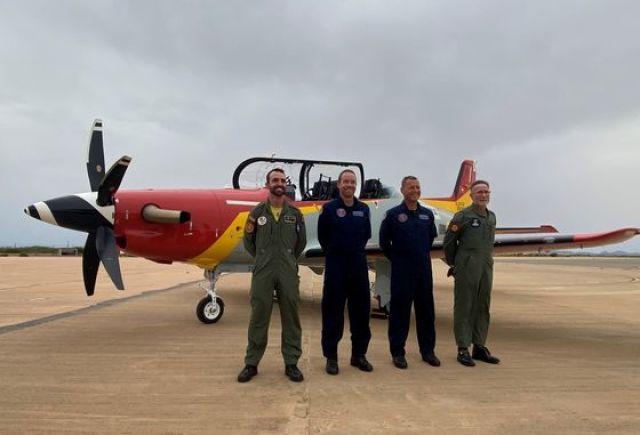TSAMTO, September 16. Pilatus Aircraft Ltd announced the ceremony of handing over the first new PC-21 (national designation E. 27) to the Spanish Defense Ministry on September 14 in San Javier (Mercia).
As reported by TSAMTO, in November 2019, the Spanish Ministry of Defense, following the results of the tender, selected the PC-21 aircraft as a replacement for 66 outdated C-101 TCB, which were used for about 40 years. The PC-21 will be used as a TCB for advanced pilot training of the Spanish Air Force.
Under the contract signed on January 30, 2020 with a Swiss company worth 204 million euros ($247 million), the Spanish Air Force will receive 24 PC-21 turboprop TCB, as well as spare parts, an integrated training system including simulators developed and manufactured by Pilatus, and related services.
Payments under the contract will be made within three years (71.5 million euros in 2020, 71 million euros in 2021 and 62.5 million euros in 2022). It was assumed that the first 6 aircraft and one simulator will be handed over to the customer in March 2020, and the delivery will be completed by the end of 2022, but the coronavirus probably made its adjustments to the delivery schedule of the first aircraft. Nevertheless, all 24 PC-21 TCBMs will be delivered to the customer by June 2022. The aircraft will be part of the 792nd Air Squadron, which is the basis of the training school at the Spanish Air Force Academy. As planned, the first pilot training course will begin in September 2022.
According to representatives of the Air Force, the delivery of the PC-21 will entail a radical change in the concept of training and will ensure the level of training of Air Force pilots that meets modern requirements.
According to the company, the experience of working with existing PC-21 customers indicates that when using the PC-21, the training budget for a military pilot cadet can be reduced by more than 50%. In addition to the aircraft itself, the system includes modern simulators, computer training and virtual reality tools.
Spain became the third country in Europe to choose a PC-21-based training system.

